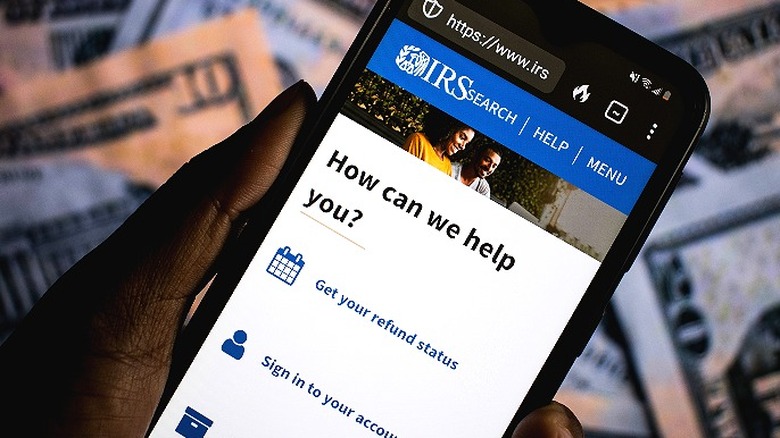5 Secrets The Wealthy Use To Protect And Grow Their Fortune
To say the U.S. is home to a lot of wealthy people is an understatement. According to Forbes, there are more billionaires in the United States than anywhere else in the world. As of April 2024, the U.S. had 813 billionaire citizens, which was double that of China (currently in second place with 406 billionaires). Further, America has more millionaires than any other country, nearly 22 million as of October 2023 (again, as reported by Forbes).
A 2024 Charles Schwab survey on modern wealth found that 64% of Americans believe it's more possible to reach their financial goals today than for previous generations. Half of those surveyed pointed to the different avenues available to build wealth, with 46% of respondents pointing to access to various investment opportunities as reasons why. That said, 64% of those surveyed said they have no formal financial plan to reach their goals. If this includes you, we can perhaps help with getting started. Here are five ways the wealthy protect and grow their fortune.
Put your strategy in writing
Plan to fail when you fail to plan. With almost two-thirds of Americans not having a financial plan, it should be obvious that this is the first obstacle to growing and maintaining wealth. According to a much-cited study by Dominican University psychologist and professor Gail Matthews, you're up to 42% more likely to achieve goals you write down. So write a list of your goals, and while you're at it, build out a monthly budget that considers everything you spend in a month — groceries, rent, subscriptions — versus what you earn. You can adjust as you see necessary in order to free up extra money.
Nothing will screw up your plan faster than needing cash in an emergency and not having any. Start putting aside some of your income for an emergency fund, which money experts suggest should cover you for three to six months. Also think about placing some of your income into investments that take the future into account. Assuming you haven't quite hit retirement age, there's no time like the present to know what you want that to look like. Finally, life is filled with twists and turns. Take a tip from martial arts master Bruce Lee and be like water with your plan. Life changes, and your plan shouldn't be so rigid that it can't change when you need it to.
Have a diverse investment portfolio
Another millionaire secret is not to lay all your financial eggs in one basket. Diversifying your investments doesn't just help you grow your wealth, it protects your wealth from an all-or-nothing bet on a single investment vehicle. Some investments can be in brick-and-mortar like real estate; others should be less tangible like stocks and bonds. Otherwise, exchange-traded funds and mutual funds do the work of diversification by allowing you to invest in multiple stocks with one purchase. If you like the idea of investing in real estate but don't want to take on all the risk or have enough money to take on a mortgage, real estate investment trusts, aka REITs, allow you to own shares in properties alongside other investors with the potential of earning quarterly dividends.
Aside from diversifying your portfolio, wealthy people tend to diversify their wealth across regional jurisdictions, including Europe and the Caribbean. The reasoning is this protects their money from market fluctuations in one part of the world, which helps them hedge their investment bets. While diversification is a favored investment strategy of the wealthy, veteran investor Warren Buffett has warned against owning 30 or more stocks when a handful will do. To Buffett, it's a sure sign of an investor unsure of their investments, and who is more likely to dilute their earnings than grow them. (Here are a few more money tips and tricks from Warren Buffett.)
Pay less taxes (legally, of course)
According to USAFacts' analysis of IRS and Census Bureau data, the average American middle-class household in 2021 paid $17,902 in taxes, with $10,391 paid in federal income tax. While the top 1% of income earners in 2021 paid an average tax rate of 25.9% versus the 3.3% average for the bottom 50% of earners, according to the Tax Foundation, and covered 45.8% of the nation's federal tax burden, their share of capital gains has also risen steadily from 2020.
After the Panama Papers — a 2016 exposé of wealthy internationals and their tax havens – we got a tiny glimpse into some of the ways the wealthy avoid paying taxes without breaking the law. While not the same as an overseas account, your 401(k) can also lower your taxable income in the present, deferring those taxes until your retirement. A Roth 401(k), meanwhile, which is funded with after-tax dollars, allows for tax-free withdrawals in later years. (Note that with a Roth 401(k), you do have to wait until age 59 ½ to make withdrawals without incurring an early-withdrawal penalty, which is the main difference from a Roth IRA.)
Further, standard charitable donations are tax deductible from $14,600 to $29,200 in 2024, depending on who or how many people in a household are claiming the deduction. If you have kids, you can give money to them to lower your taxable income but you'll need to stay under the threshold for gift taxes. In 2024, that's $18,000 for individuals or $36,000 for couples.
Insure your most valuable assets
The Federal Deposit Insurance Commission (FDIC) automatically covers up to $250,000 per financial institution and per account type at each institution. That means that even with several accounts — a savings, checking, and joint account for instance — up to $250,000 in each account is insured by the FDIC. All you need to do is deposit the money into an account. If you have an investment account with a brokerage, the Securities Investor Protection Corporation will protect up to $500,000 worth of your money from the worst-case scenario of a bankrupt firm or theft, but you can get even more coverage if you know how to structure your accounts properly.
Having comprehensive insurance coverage for your tangible assets like homes is obviously a good idea, but include liability insurance, especially for items like vehicles. Accidents occurring with passengers in your vehicle could lead to a lawsuit against you, and while most states require a minimum amount of liability insurance, the minimum may not be a practical amount of coverage. For this reason, consider forking out more money for higher coverage. Further, if you're a self-employed professional or small to medium-sized business owner, include professional liability coverage or a business owner policy (BOP) to protect your income, or in the latter case, property, from litigation.
Have a plan for your estate
You don't want to find out what happens to your money if you die without a will. If you have assets you plan to pass on, you'll want to create a will to ensure everyone is taken care of in the way you've designed after you're gone. Having a will dispensed by someone you've given authority to, to manage your estate after your demise (aka power of attorney), lowers the chances of your assets not being doled out in the way you planned and limits disputes. The agent or attorney-in-fact can act on your behalf in any capacity you've authorized them in your power-of-attorney document; if you don't have one, the state may appoint someone you don't know who's unaware of your wishes to do so on your behalf.
You can also consider a revocable living trust to protect your assets; this offers you a little more flexibility in terms of being able to change parts of the trust while you're still alive. Unlike living wills, which only kick in once you're deceased, a revocable living trust comes into effect the second you sign it. You'll have to transfer funds into the trust immediately, but the benefit is you'll avoid the hassle of probate (basically, the process of administering your will after you've passed on). What's more, it's an extra layer of protection in case you become physically or mentally incapacitated and lose the ability to make decisions about your estate before you die.





